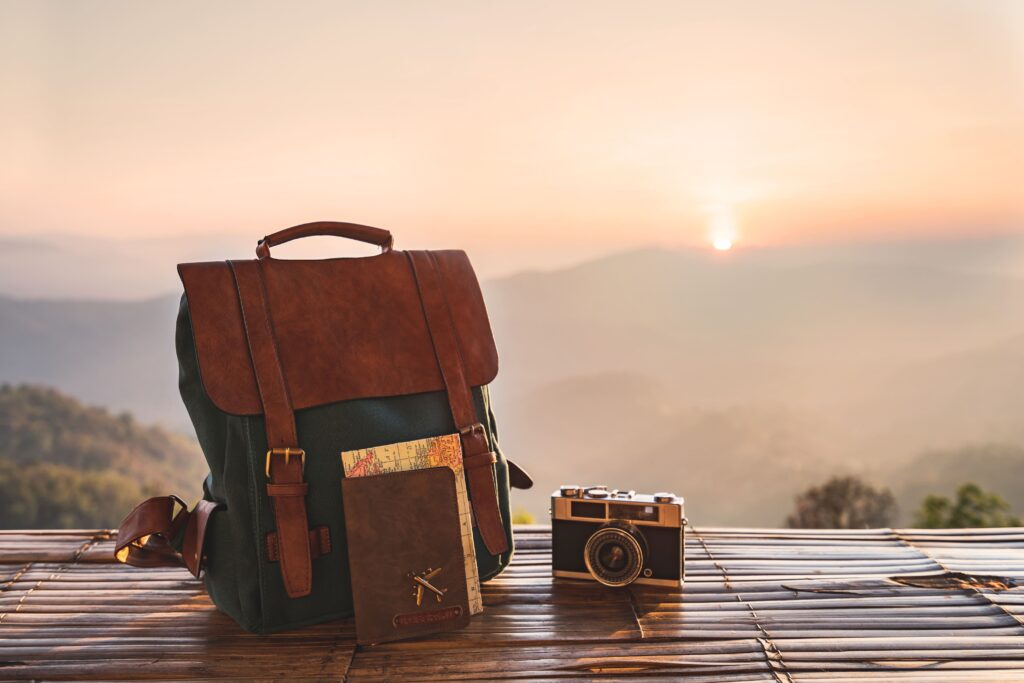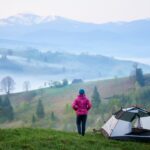Embarking on your first outdoor camping and hiking adventure can be both exciting and a bit daunting. With the right preparation and knowledge, you can ensure a memorable and enjoyable experience in the great outdoors. Here’s a beginner’s guide to help you navigate your first trip, covering everything from essential gear to safety tips.
Essential Gear for Your First Sports and Outdoors Adventure
Starting with the right gear is crucial for a successful camping and hiking experience. The world of sports and outdoors equipment can be overwhelming, but focusing on the essentials will make your trip smoother and more enjoyable.
First, invest in a quality tent that suits your needs. Consider the size, weight, and weather resistance. A tent with easy setup features is ideal for beginners. Ensure you have a reliable sleeping bag and a comfortable sleeping pad to keep you warm and insulated from the ground.
Backpacks are another critical piece of gear. Choose a backpack with enough capacity to hold your essentials, and ensure it has good support and padding for comfort during hikes. Hydration packs or water bottles with filters are essential to keep you hydrated throughout your journey.
Proper clothing can make or break your outdoor experience. Layering is key to staying comfortable in changing weather conditions. Start with moisture-wicking base layers, add insulating layers, and finish with a waterproof and windproof outer layer. Don’t forget sturdy hiking boots or shoes with good traction.
Other important items include a first-aid kit, a map and compass or GPS device, a multi-tool, and a headlamp or flashlight with extra batteries. These items will help you handle minor injuries, navigate trails, and manage various tasks around the campsite.
Choosing the Perfect Campsite for Outdoor Camping and Hiking
Selecting the right campsite is crucial for a pleasant outdoor experience. When considering sports and outdoors locations, look for areas that match your skill level and offer the amenities you need.
Start by researching campgrounds in national parks, state parks, or designated camping areas. These locations often provide well-maintained sites with facilities such as restrooms, picnic tables, and fire pits. For beginners, staying at a developed campground can make the experience less intimidating.
Consider the terrain and environment of the campsite. Look for level ground to set up your tent, and avoid areas prone to flooding. Check for nearby water sources, but remember to treat any water before drinking. A site with some tree cover can provide shade and protection from the wind.
Accessibility is another important factor. Choose a campsite that is easily reachable and not too far from your car or the main trail. This makes it easier to transport your gear and provides a quick escape in case of bad weather or emergencies.
Observe local regulations and guidelines regarding campfires, waste disposal, and wildlife. Some areas may have restrictions to protect the environment and ensure the safety of campers. Leave no trace principles are essential to preserve the natural beauty of the outdoors.
Planning Your Hiking Route: Tips for Beginners
Hiking is a core activity in any outdoor camping trip. Planning your route carefully ensures a safe and enjoyable hike, especially for beginners in sports and outdoors activities.
Start by choosing a trail that matches your fitness level and experience. Look for beginner-friendly trails that offer moderate distances and elevations. Many parks and hiking websites provide detailed trail information, including difficulty ratings and user reviews.
Familiarize yourself with the trail map and plan your route accordingly. Identify key landmarks, rest points, and potential hazards. Having a clear plan helps you stay on track and reduces the risk of getting lost.
Check the weather forecast before heading out and be prepared for sudden changes. Pack appropriate clothing and gear for the expected conditions. It’s better to be over-prepared than caught off guard by unexpected weather.
Inform someone about your hiking plans, including your route and expected return time. This way, someone knows where you are in case of an emergency. Hiking with a companion is also a good idea for added safety and company.
Bring enough food and water to sustain you throughout the hike. High-energy snacks like nuts, trail mix, and energy bars are convenient and nutritious. Stay hydrated by drinking water regularly, even if you don’t feel thirsty.
Staying Safe: Outdoor Camping and Hiking Safety Tips
Safety should always be a top priority during any sports and outdoors activity. Following basic safety tips can prevent accidents and ensure a fun and worry-free camping and hiking experience.
First, be aware of your surroundings and potential hazards. Keep an eye out for wildlife and maintain a safe distance. Store food securely to avoid attracting animals to your campsite. If you encounter larger animals like bears, know how to respond safely.
Stay on marked trails and avoid venturing into unknown areas. Trails are designed to guide you safely through the terrain and protect the environment. Off-trail hiking can lead to dangerous situations and damage fragile ecosystems.
Carry a basic first-aid kit and know how to use it. Include items like bandages, antiseptic wipes, pain relievers, and any personal medications. Knowing basic first-aid skills can be invaluable in handling minor injuries and illnesses.
Weather can change quickly in the outdoors. Be prepared for rain, wind, and sudden temperature drops by packing appropriate clothing and shelter. Hypothermia and heat exhaustion are real risks, so monitor your condition and adjust your activities as needed.
Practice fire safety if you’re allowed to have a campfire. Keep fires small, never leave them unattended, and fully extinguish them before leaving the site. Use a camp stove for cooking to minimize the risk of wildfires.
Making the Most of Your Sports and Outdoors Experience
Camping and hiking are about more than just survival; they’re opportunities to connect with nature and create lasting memories. Here are some tips to enhance your sports and outdoors adventure.
Take time to appreciate the natural beauty around you. Whether it’s a breathtaking vista, a serene forest, or a tranquil lake, pausing to soak in the scenery can be incredibly rewarding. Bring a camera or journal to capture your experiences and reflect on them later.
Engage in activities that enrich your camping experience. Fishing, bird watching, stargazing, and nature photography are just a few options that can add depth to your adventure. These activities help you connect with the environment and make the trip more enjoyable.
Practice mindfulness and be present in the moment. Outdoor camping and hiking provide a break from the hustle and bustle of daily life. Use this time to disconnect from technology, relax, and recharge your mind and body.
Make new friends and share experiences with fellow campers and hikers. The sports and outdoors community is often friendly and welcoming. Sharing stories, tips, and advice with others can enhance your trip and create new friendships.
Lastly, leave the environment better than you found it. Follow leave no trace principles by packing out all your trash, respecting wildlife, and minimizing your impact on the natural surroundings. By doing so, you ensure that future generations can enjoy the same beautiful landscapes.
Embarking on your first outdoor camping and hiking adventure is a thrilling experience. With the right preparation, gear, and mindset, you can create a safe, stimulating, and unforgettable journey into the great outdoors.






